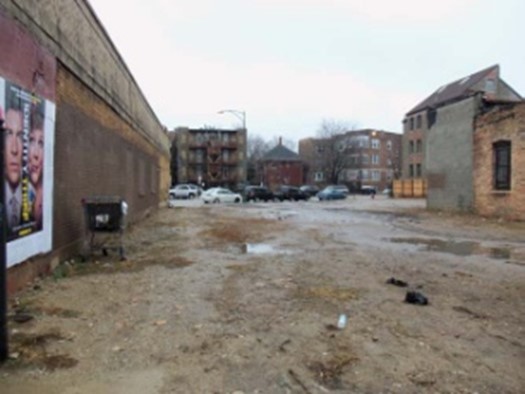January 2013
 Client: Though often defined by its skyline, the heart and soul of Chicago lies in its many vibrant neighborhoods. Rogers Park, located in the far northeast corner of the city, is one of the most culturally and economically diverse neighborhoods in Chicago. The Rogers Park Business Alliance (RPBA), a non-profit organization formed in 1993, is dedicated to improving the neighborhood in the areas of business, community and economic development. Its mission is to cultivate and sustain a thriving economic environment in Rogers Park, serving both businesses and residents.
Client: Though often defined by its skyline, the heart and soul of Chicago lies in its many vibrant neighborhoods. Rogers Park, located in the far northeast corner of the city, is one of the most culturally and economically diverse neighborhoods in Chicago. The Rogers Park Business Alliance (RPBA), a non-profit organization formed in 1993, is dedicated to improving the neighborhood in the areas of business, community and economic development. Its mission is to cultivate and sustain a thriving economic environment in Rogers Park, serving both businesses and residents.
Howard Street represents the northern edge of the Rogers Park neighborhood and forms the border between the City of Chicago and the affluent suburb of Evanston. Once a vibrant entertainment district, the area began to experience decline in the 1980s and has seen only limited private investment since that time. The public sector has invested heavily in Howard Street with the rebuilding of the busy transit station, the Howard Streetscape beautification project, and the construction of a new Chicago Park District Field House.
Challenge: Given the public investment in infrastructure in the past decade, Howard Street would appear to be ready for private development. However, private developers must overcome both real and perceived concerns regarding public safety and the overall strength of commercial real estate demand before proceeding. The RPBA engaged the Consulting Corps to analyze several sites along Howard Street from a private developer’s perspective, identify the most salient obstacles and suggest corresponding solutions for attracting private developers to Howard Street.

 Assessment: The six sites under consideration represented a diverse array of physical obstacles to development. While some parcels are vacant, others support obsolete or abandoned improvements that would need to be razed. The political backdrop surrounding the sites was also considered. To gain a deeper understanding of the socioeconomic forces at play, the team established a “core trade area” within the broader community which included the sites that held the most promise for commercial development. The team performed a comparative demographic and income analysis of the core trade area and of Rogers Park. To augment its research, the team also interviewed local market participants who have detailed knowledge of the history surrounding the sites under consideration. Based on the information gathered and the combined expertise of the team, a highest and best use was determined for a one-acre parcel and the likely market values for two potential projects were estimated.
Assessment: The six sites under consideration represented a diverse array of physical obstacles to development. While some parcels are vacant, others support obsolete or abandoned improvements that would need to be razed. The political backdrop surrounding the sites was also considered. To gain a deeper understanding of the socioeconomic forces at play, the team established a “core trade area” within the broader community which included the sites that held the most promise for commercial development. The team performed a comparative demographic and income analysis of the core trade area and of Rogers Park. To augment its research, the team also interviewed local market participants who have detailed knowledge of the history surrounding the sites under consideration. Based on the information gathered and the combined expertise of the team, a highest and best use was determined for a one-acre parcel and the likely market values for two potential projects were estimated.
Recommendations: The team provided short-term recommendations to improve Howard Street and to evaluate other successful programs. The long-term recommendations included rebranding strategies that emphasize the availability for new residents, new users and new opportunities, and the need to forge connections with advocates, planners and capital sources beyond the boundaries of the neighborhood.


The Team: Team members included: CREs David Walden, National Property Valuation Advisors, Chicago; Michael Dinn, Dinn Focused Marketing, Cincinnati area; Alice Johnson, Vero Beach, Florida; Julie McIntosh, Atlanta; and Jim Patton, Patton Consultants, Baltimore area. Walden served as team leader and CRE Brent Palmer represented the CRE Consulting Corps in procuring the assignment.
If you are aware of an organization in your community who could benefit from CRE Consulting Corps assistance, please contact Samantha DeKoven in the CRE office (312-329-8431; sdekoven@cre.org).


